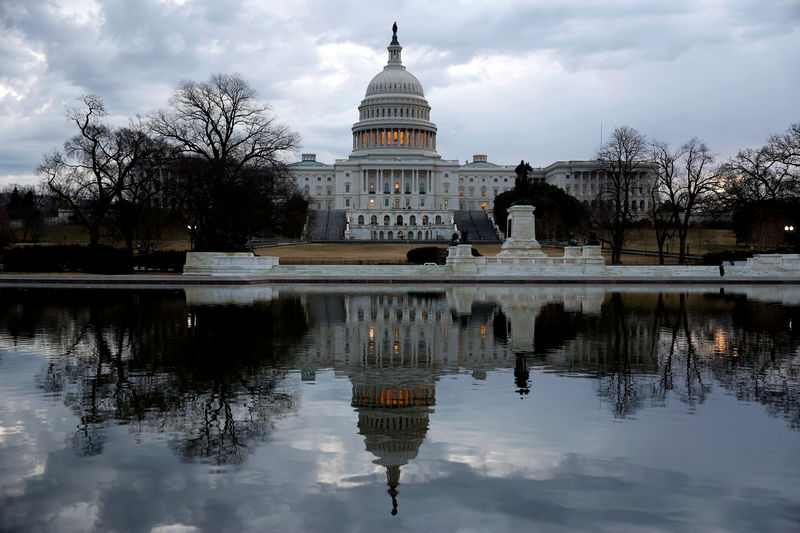Investing.com’s stocks of the week
(Reuters) - The Republican-led Alabama House of Representatives has passed a bill to end special elections for the U.S. Senate, just more than a month after such a vote resulted in the state electing its first Democratic senator in a quarter-century.
House Bill 17 would require the governor to appoint someone to fill a vacancy for a U.S. Senate seat until the next general election. It passed easily in Alabama's House on a mostly party-line vote and headed to the state's Republican-controlled Senate.
Republicans who dominate the legislature have shown support for the bill. Republican Governor Kay Ivey's office was not immediately available for comment.
The bill's sponsor, Republican state Representative Steve Clouse, said the measure would put Alabama law on special elections in line with that of the majority of states, adding it was also aimed at saving the state money.
The election process that resulted in Democrat Doug Jones, a former U.S. attorney, defeating Republican Roy Moore, a Christian conservative and former state chief justice, in December for the U.S. Senate seat cost the state about $11 million, Clouse said.
He said he pre-filed the bill several months before the special election process started and it had nothing to do with the candidates who ran.
"We are not plowing new territory here. This is the way 36 other states do it," he said on Wednesday in a phone interview. "It is not trying to change the results and it is not a reaction to how it all turned out because it was filed before the election even took place."
Opponents said the bill, if enacted, would deprive voters of having their voices heard in who should represent them in the U.S. Senate.
"You’re taking away from citizens the right to vote,” Democratic Representative Louise Alexander told the Montgomery Advertiser newspaper.
Former Alabama Republican Governor Robert Bentley appointed Republican Luther Strange last February to fill the seat that Jeff Sessions held before joining President Donald Trump's Cabinet.
About two months later, Bentley resigned as governor amid impeachment proceedings spurred by a sex scandal with a former staffer. The new governor, Ivey, called for a special election.
Strange lost the Republican primary to Moore, whose candidacy was beset by allegations that he sexually assaulted or pursued teenage girls while in his 30s. Moore denied the allegations.
